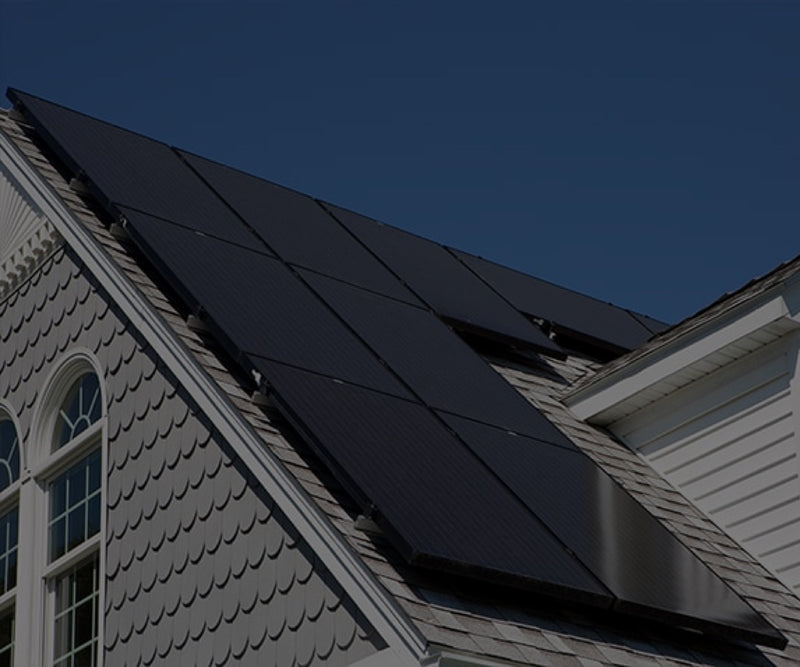
Solar Tax Credit: Your Complete Guide to Federal Solar Tax Credit
Have you installed a solar power system or do you plan to have one installed in the next couple of years? In that case, you’re probably qualifying for the federal solar tax credit.
To make your solar system installation even more worthwhile, we created this solar tax credit guide will help you understand what is it and how to claim it.
What Is the Federal Solar Tax Credit?
The solar investment tax credit (ITC), commonly known as the solar tax credit, offers homeowners and commercial property owners incentives to install solar and move to renewable energy.
The ITC was extended in December 2020 as part of the federal government COVID-19 relief package and was further extended in 2022 as part of the Inflation Reduction Act.

How Does the Solar Tax Credit Work?
The solar tax credit allows you to claim 30% (or 26% or 22%, depending on the year you install) of the total cost of your solar system as a credit on your federal tax return.
-
2022
If you install your solar power system from 2022-2032, you'll receive a 30% solar tax credit. This means if you pay $20,000 for your solar system, you'll owe $6,000 less when you file your taxes the following year.
-
2033
If you install your solar power system in 2033, you’ll receive a 26% solar tax credit.
-
2034
If you install your solar power system for a commercial project, you’ll receive a 22% solar tax credit.
Do You Qualify for the Federal Solar Tax Credit?
To qualify for the solar panel tax credit, you must:
- Own your solar panels and solar system
- Own your home or commercial property
Your home does not have to be your primary or principal residence, but you do have to be the homeowner.
Solar leases and power purchasing agreements may not be eligible for the solar tax credit; since you are not the equipment owner, you won’t receive the tax credit.
The federal solar tax credit applies to:
- ANY complete solar power package for home or business.
- Product purchases that expand your existing solar power system and include at least one solar panel.
- Battery systems that are installed with your solar panels
- Labor costs of hiring someone to install your solar panel system
- Miscellaneous electrical and building material you will need to source to complete the installation of your solar panel kit
How to Claim Your Federal Solar Tax Credit
Follow these tips and best practices to claim your federal solar tax credit and receive substantial savings.
- Save all receipts – Save all receipts related to your solar project, including equipment, shipping, installation, tools and parts, and permitting. You’ll want to show physical proof to maximize your solar tax credit savings.
- Place your solar system service – To claim your federal solar tax credit, you must place your solar system in service on or after January 1, 2006, and on or before December 31, 2024.
- Fill out Form 5695 (Residental) – For residential renewable energy systems, use IRS Tax Form 5695 to report your expenses. (You can use this form for any residence, not just your primary one.) Learn more about residential tax credits.
- Fill out Form 3468 (Commerical) – For commercial renewable energy systems, use IRS Tax Form 3468 to report your expenses. Learn more about commercial tax credits.
- No maximum solar credit – There is no ceiling or cap on the solar tax credit, and there is no maximum credit for systems placed in service after 2008.
- Carryover your tax liability – If the federal tax credit exceeds your tax liability, you may carry over the excess amount the following taxable year.
Disclaimer: While we aim to provide accurate and up-to-date information, note that every individual's tax situation is different. Please consult a tax professional to make sure you’re eligible to receive the federal solar tax credit.
Get started with solar energy today
There’s never been a better time to switch to renewable solar energy. Not only has the price of solar equipment and electricity dropped significantly in the last ten years, but also DIY solar installation is now a hassle-free experience that can save you thousands more.
DIY solar panel kits are easy for you or a contractor to install within a weekend. At GoGreenSolar, we guide you through every step of the solar installation process and even offer a permit approval guarantee. Purchase from us with confidence!

Start your solar journey today!
Get a free solar estimate and complimentary solar roof layout from GoGreenSolar. No appointment needed!

Solar Calculator

Which Solar Kit Do I Need?
GET STARTED WITH SOLAR
WE’LL HELP YOU FIGURE OUT YOUR SOLAR NEEDS!
Fill out the form for a complimentary solar quote that includes a custom satellite layout, system design and a breakdown of total project cost and estimated savings.
